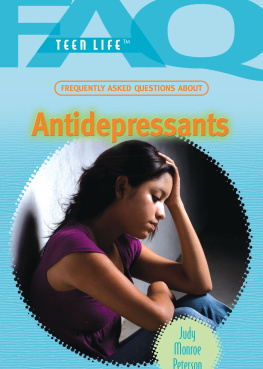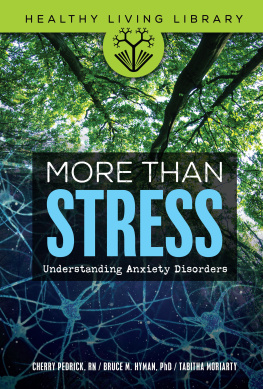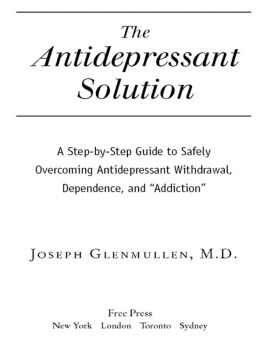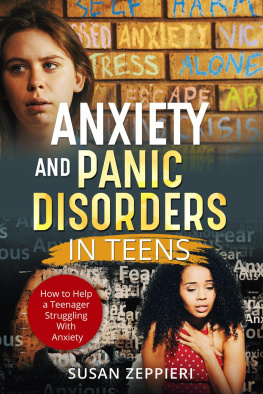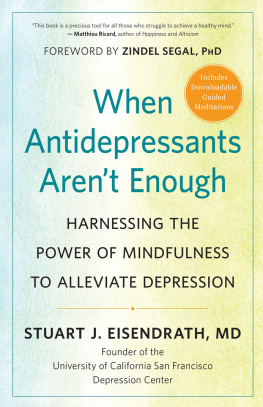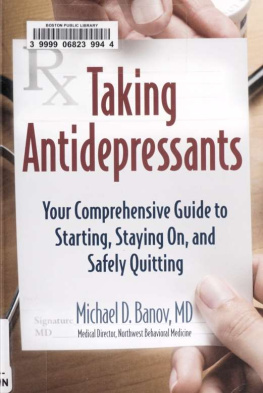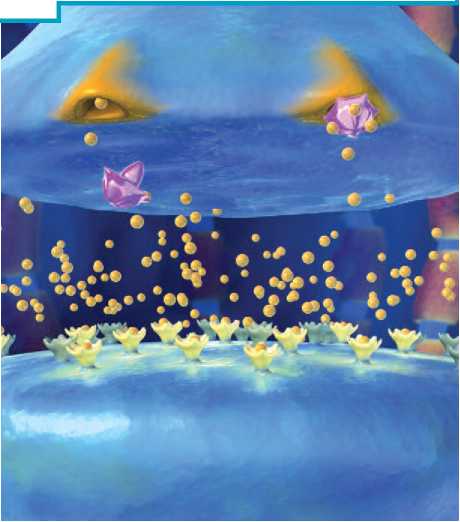Published in 2010 by The Rosen Publishing Group, Inc.
Copyright 2010 by The Rosen Publishing Group, Inc.
All rights reserved. No part of this book may be reproduced in any form without permission in writing from the publisher, except by a reviewer.
Peterson, Judy Monroe.
Frequently asked questions about antidepressants / Judy Monroe Peterson.1st ed.
p. cm.(FAQ: teen life)
Includes index.
1. AntidepressantsPopular works. 2. Depression, Mental Popular works. I. Title.
Antidepressants are medications prescribed by doctors to treat depression and other disorders, such as panic and eating disorders and anxiety. Currently, more than twenty different antidepressants are available for adults and teens. Most can be taken as a capsule, tablet, or liquid. The U.S. Food and Drug Administration (FDA) regulates antidepressants and all other prescription medications.
Antidepressants are not stimulants. They do not make you feel overly excited, happy, or peppy. Antidepressants reduce the amount of excessive depression that you were feeling. They help you feel the way you did before you became depressed. Antidepressants are commonly used in the United States. In 2008, the Agency for Healthcare Research and Quality reported that people in the United States filled nearly 170 million prescriptions for antidepressants in 2005. The use of antidepressants among people ages ten to nineteen continues to increase.
Understanding Antidepressant Medications

The Food and Drug Administration (FDA) is an agency of the U.S. Department of Health and Human Services and is responsible for regulating the safety of antidepressants and other drugs.
Feeling Down
Being in a bad mood every now and then is normal and a part of everyday life. Most teens feel sad or down sometimes. Getting rejected, breaking up, or being turned down for a date are common reasons why teens feel sad or disappointed. Occasionally, you may feel blue or out-of-sorts for no particular reason at all, but you still participate in regular activities like going to school and spending time with friends. Your sadness or unhappy feelings are temporary. They usually pass in a day or in a few days.
Sometimes, a difficult event may occur that sends some people into a depression. If your parents get divorced, a beloved pet dies, or a close friend is in a horrible accident, you might feel shock, anger, or deep sadness. Over time, people usually work through their grief and adjust to the changes in their lives. However, if these feelings persist for an abnormally long time, you might have depression.
Depression
According to the National Institute of Mental Health, about 14.8 million adults in the United States have depression. Nearly two million teenagers (ages twelve to eighteen) are affected by this disorder as well. In April 2009, the U.S. Preventive Services Task Force, which sets guidelines for doctors on many health issues, recommended that all American teenagers get screened for depression, as long as there are appropriate screening tests to ensure accurate diagnosis, treatment, and follow-up care. This serious medical illness affects emotions, thoughts, behaviors, and health. People might feel hopeless, deeply unhappy, or unconnected to friends and family members. They lose interest in relationships, school, and social activities.
Antidepressants were first developed in the 1950s. Today, about thirty different antidepressants are available to treat depression and other mental disorders.
Depression can continue for several weeks, months, or even longer. The symptoms vary for each person. Common symptoms include feeling negative, sleeping too much or too little, and weight gain or loss. Small tasks, such as making your bed or brushing your teeth, can seem like a huge undertaking. In very serious cases, people may even have thoughts of hurting themselves. Depression can usually be treated successfully, though, and a variety of treatments are available. Treatment for teens usually includes therapy or a combination of antidepressant medications and therapy.
How Antidepressants Work
Researchers are not exactly sure how antidepressants change the chemistry of the brain. Your brain is made up of billions of neurons that communicate with one another. Neurons pass messages to other neurons by releasing many different types of chemical substances called neurotransmitters. The main neurotransmitters that antidepressants affect are serotonin, norepinephrine, and, to a lesser extent, dopamine.
Neurotransmitters are released from storage in small "bubbles" called vesicles, which are located at the ends of neurons (nerve cells). These biochemicals cross the gaps between neurons, called synapses, and then bind to neurotransmitter receptors on nearby neurons. Messages that move from neuron to neuron can be about thoughts, emotions, behavior, body temperature, appetite, or other body functions. The types and amounts of neurotransmitters control how neurons communicate in the brain. When neurotransmitters finish their work, the sending neuron usually reabsorbs them in a process called reuptake. Then the neurotransmitters can be released again later.
Sometimes, the reuptake of serotonin or norepinephrine occurs too soon. As a result, the brain does not have enough of the neurotransmitter. This can cause depression. Each type of antidepressant works differently. Some antidepressants slow the reuptake process of serotonin or norepinephrine in the brain. Other antidepressants interact directly with the receptors that release these neurotransmitters. In all cases, antidepressants cause an increase in the levels of serotonin or norepinephrine that stick around in the synapses. This process allows more neurotransmitters to interact with their receptors, which generally improves people's moods.
This computer artwork shows the action of antidepressants called selective serotonin reuptake inhibitors (SSRIs). The SSRIs (pink) work at synapses to block the reuptake of serotonin (orange). More of the neurotransmitter serotonin is then available.
The receptors take some time to adapt in different ways as the levels of neurotransmitters increase. It is not known if the number of receptors increases or the ability of neurotransmitters to bind to their receptors increases. Perhaps it is a combination of the two. Researchers think that the changes in the receptors cause mood to improve, but they do not completely understand yet how this happens. Receptors usually take from two to four weeks to adjust. This means it takes that long, or a little longer, for most antidepressants to take full effect in the body.

